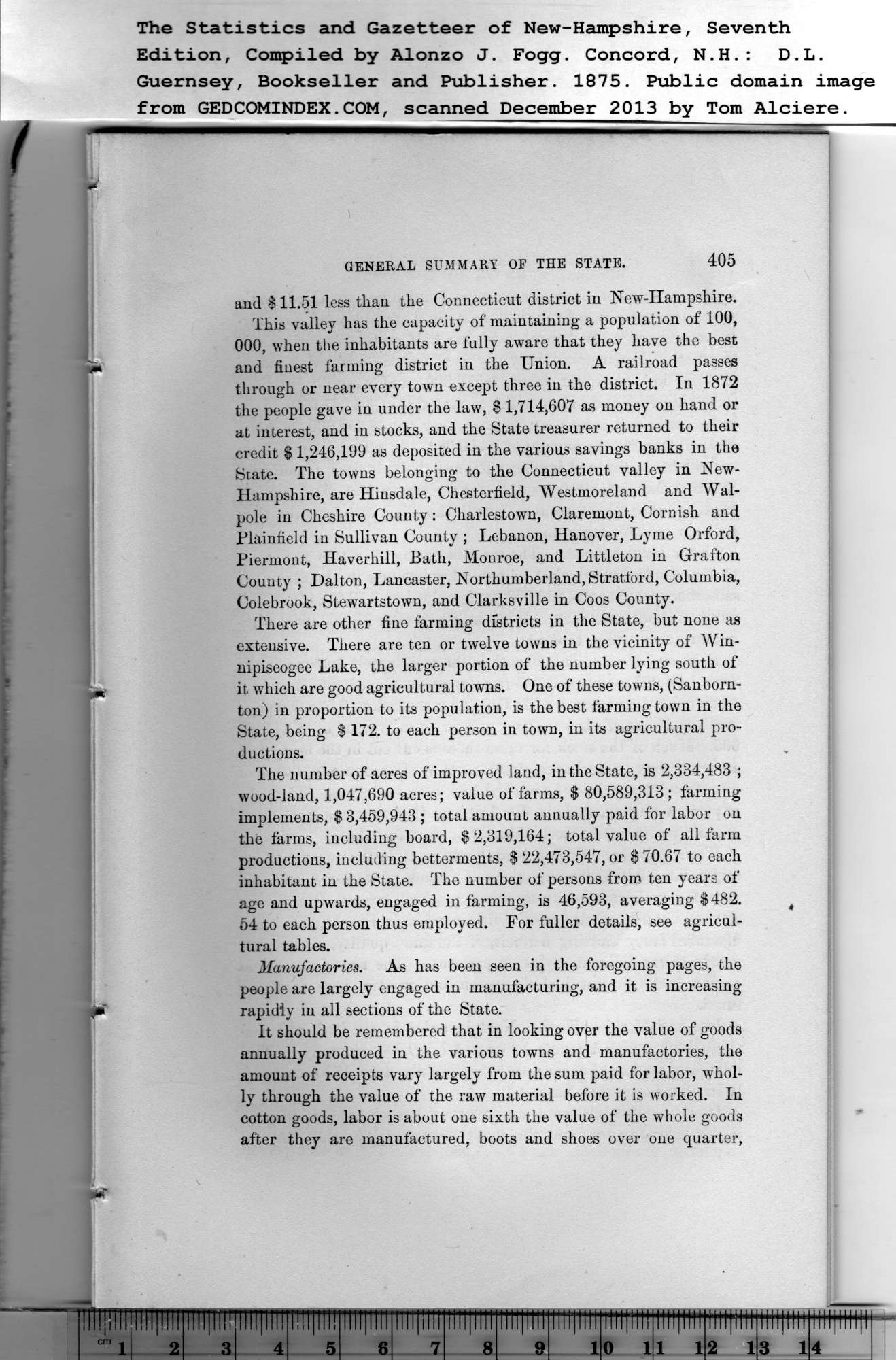|
GENERAL SUMMARY OF THE STATE. 405
and $ 11.51 less than the Connecticut district in New-Hampshire.
This valley has the capacity of maintaining a population of 100,
j : 000, when the inhabitants are fully aware that they have the best
P» and fiuest farming district in the Union. A railroad passes
through or near every town except three in the district. In 1872
the people gave in under the law, $ 1,714,607 as money on hand or
at interest, and in stocks, and the State treasurer returned to their
credit $ 1,246,199 as deposited in the various savings banks in the
State. The towns belonging to the Connecticut valley in New-
| Hampshire, are Hinsdale, Chesterfield, Westmoreland and Wal-
pole in Cheshire County: Charlestown, Claremont, Cornish and
Plainfield in Sullivan County ; Lebanon, Hanover, Lyme Orford,
Piermont, Haverhill, Bath, Monroe, and Littleton in Grafton
County ; Dalton, Lancaster, Northumberland, Stratford, Columbia,
Colebrook, Stewartstown, and Clarksville in Coos County.
There are other fine farming districts in the State, but none as
1 extensive. There are ten or twelve towns in the vicinity of Win-
nipiseogee Lake, the larger portion of the number lying south of
' pr it which are good agricultural towns. One of these towns, (Sanborn-
ton) in proportion to its population, is the best farming town in the
State, being $ 172. to each person in town, in its agricultural pro-
| ductions.
: The number of acres of improved land, in the State, is 2,334,483 ;
wood-land, 1,047,690 acres; value of farms, $ 80,589,313; farming
implements, $ 3,459,943 ; total amount annually paid for labor on
the farms, including board, $2,319,164; total value of all farm
productions, including bettermeuts, $ 22,473,547, or $ 70.67 to each
inhabitant in the State. The number of persons from ten years of
age and upwards, engaged in farming, is 46,593, averaging $482.
54 to each person thus employed. For fuller details, see agricul-
tural tables.
Manufactories. As has been seen in the foregoing pages, the
people are largely engaged in manufacturing, and it is increasing
• f* rapidly in all sections of the State.
It should be remembered that in looking over the value of goods
annually produced in the various towns and manufactories, the
amount of receipts vary largely from the sum paid for labor, whol-
ly through the value of the raw material before it is worked. In
cotton goods, labor is about one sixth the value of the whole goods
after they are manufactured, boots and shoes over one quarter,
PREVIOUS PAGE ... NEXT PAGE
This page was written in HTML using a program written in Python 3.2
|
